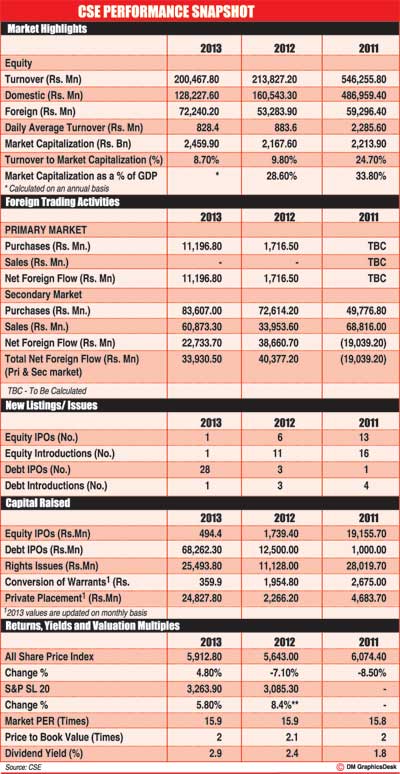13 Jan 2014 - {{hitsCtrl.values.hits}}
.jpg) Dr.Nalaka Godahewa, Chairman of the Securities and Exchange recently shared his thoughts with the Mirror Business about the year that ended and his expectations for the country’s capital market for the New Year. The following are excerpts.
Dr.Nalaka Godahewa, Chairman of the Securities and Exchange recently shared his thoughts with the Mirror Business about the year that ended and his expectations for the country’s capital market for the New Year. The following are excerpts.
25 Nov 2024 7 hours ago
25 Nov 2024 8 hours ago
25 Nov 2024 8 hours ago
25 Nov 2024 25 Nov 2024
25 Nov 2024 25 Nov 2024